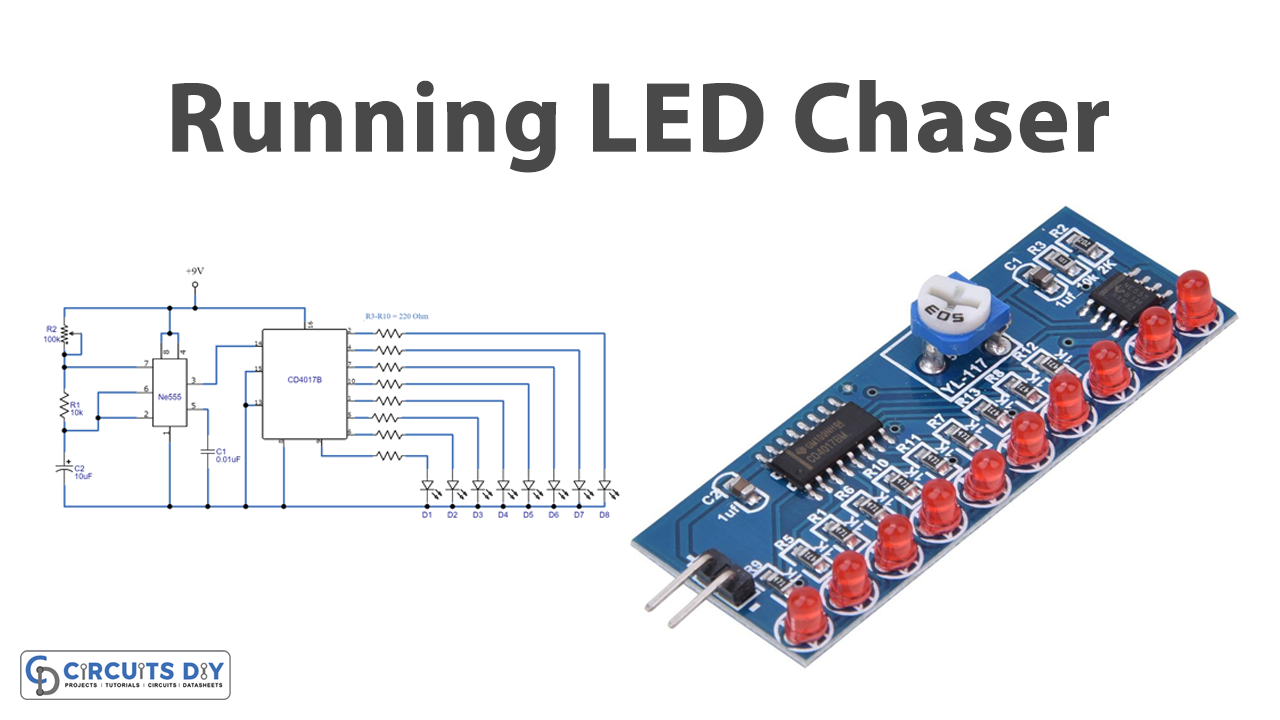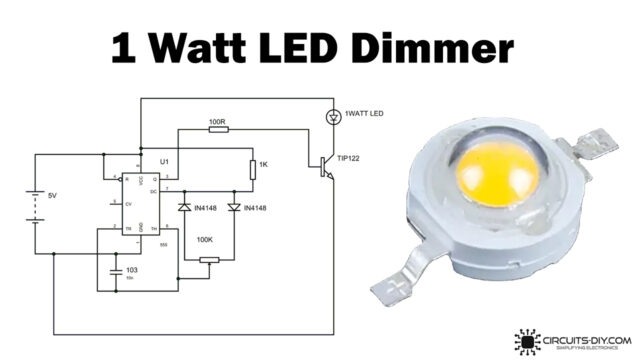Introduction
You may have seen LED lights in different events for a decoration and other ideas. Therefore, there are many different kinds of LED circuits available in the market. One of them is the LED chaser circuit. In the chaser circuit, LEDs glow or blink one after another. In other words, you can say that one LED chases the next LED. Hence named the chaser circuit. To understand the circuit and its working.
In this tutorial, we are going to “Running light chaser circuit” The circuit uses two Ics including a 555 timer IC which generates the oscillation, and a counter CD4017 IC. Thus, the circuit is simple to make, requires fewer external components, and hence affordable for students to begin their learning about electronic devices and circuits.
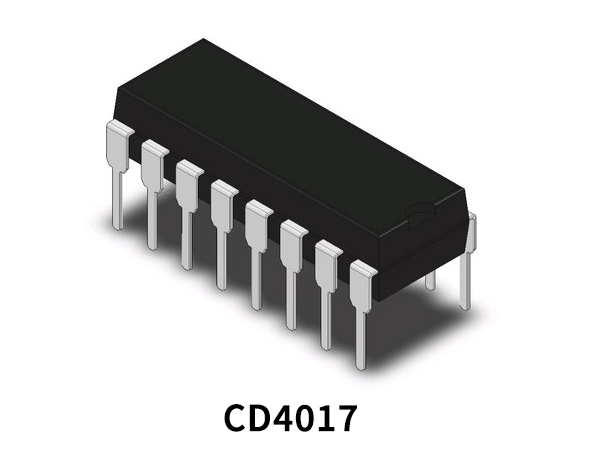
Hardware Components
The following components are required to make Running Light Chaser Circuit
| S.no | Component | Value | Qty |
|---|---|---|---|
| 1. | IC | NE555 Timer | 1 |
| 2. | IC | CD4017 | 2,1 |
| 3. | LED | – | 8 |
| 4. | Variable Resistor | 100KΩ | 1 |
| 5. | Capacitor | 10uF, 0.01uF | 1,1 |
| 6. | Resistor | 220Ω, 10KΩ | 1,1 |
CD4017 Pinout
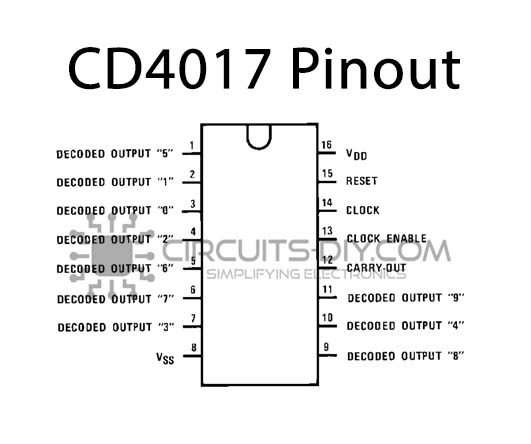
For a detailed description of pinout, dimension features, and specifications download the datasheet of CD4017
NE555 IC Pinout
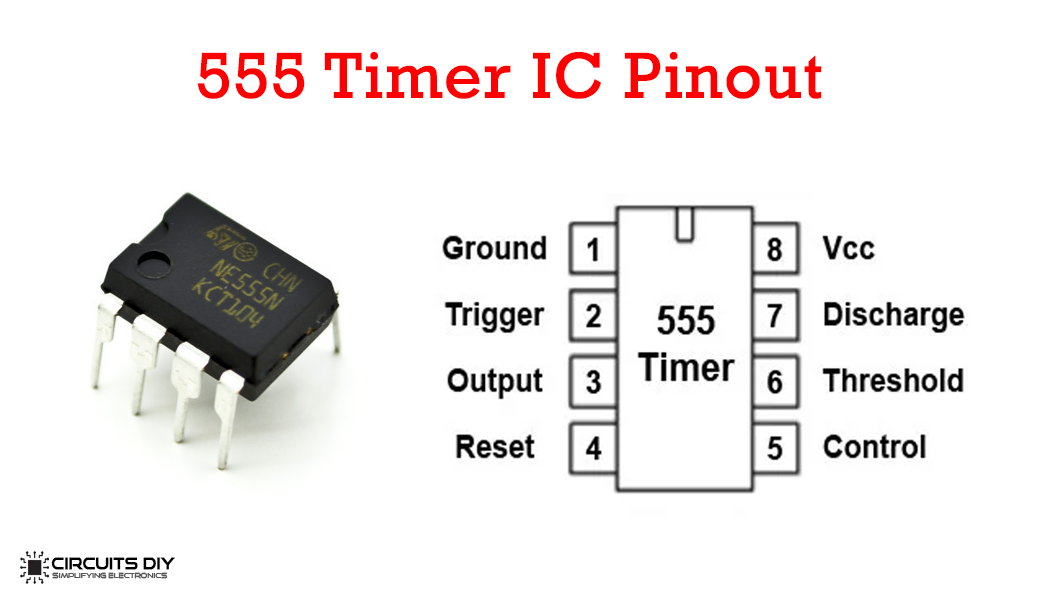
For a detailed description of pinout, dimension features, and specifications download the datasheet of NE555 IC
Running Light Chaser Circuit
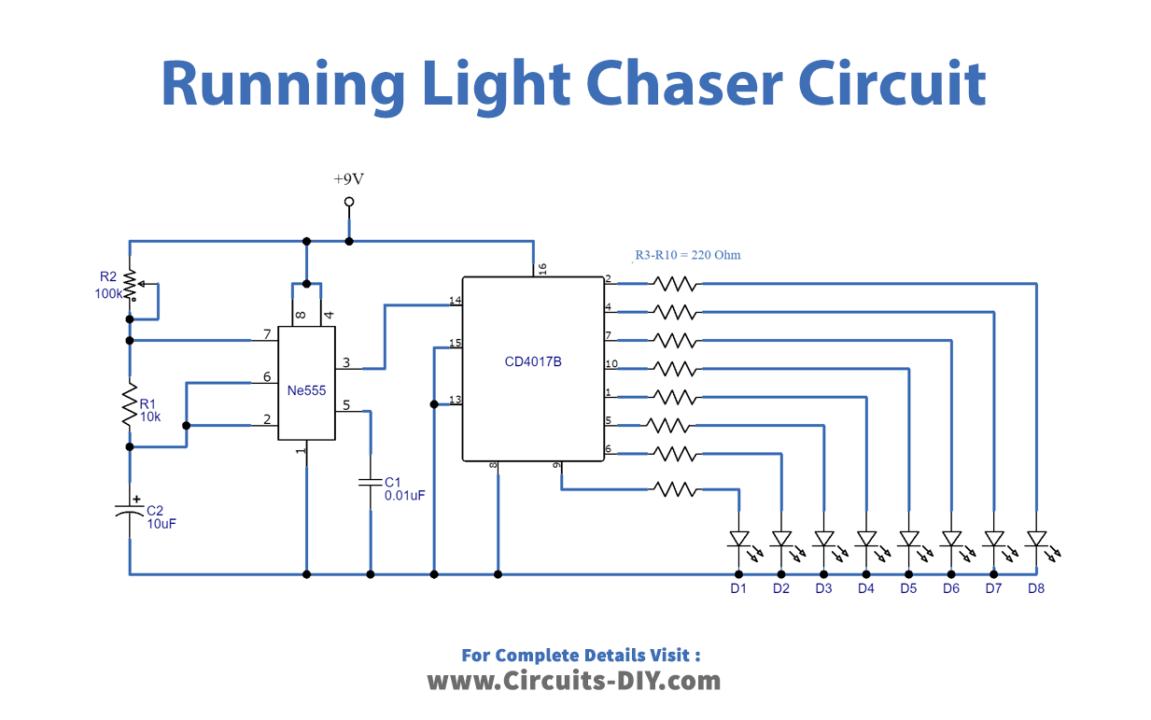
Working Explanation
In this Running light chaser circuit, the 555 timer IC is configured as the astable multivibrator mode. The timer IC generated the frequency pulses. The output frequency can be determined by the resistor R1, potentiometer R2_var, and capacitor C2. The variation in the oscillation can be performed by the potentiometer. The output of the 555 timers is given to the clock pin of the counter IC. Decoded output pins of the IC, i.e. pins 2 to 9 are connected with the LEDs through the resistor. Thus, counter IC enables the output to turn on one LED at a time.
Application and Uses
- It can be used in automobiles, bicycles, etc.
- You can use this circuit for the decoration of events like weddings, parties, etc.

